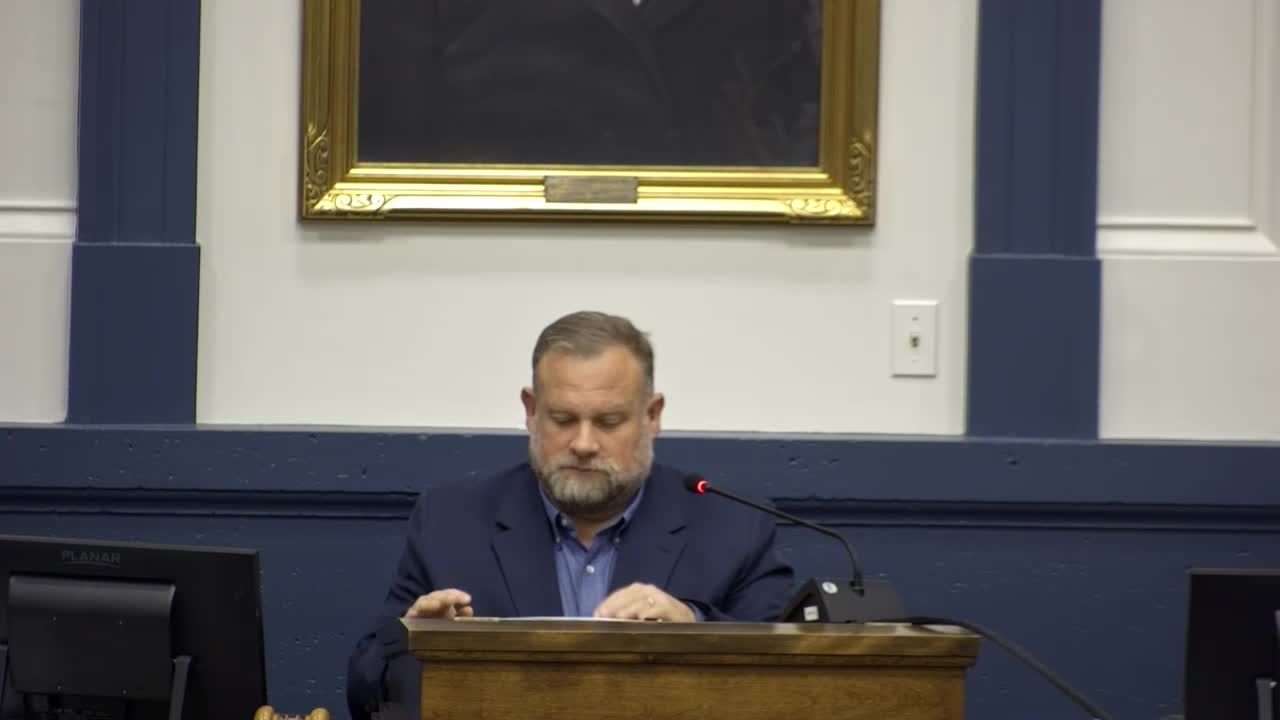Racine finance director presents proposed 2026 budget, warns of structural deficit and heavy retiree-health obligation
Get AI-powered insights, summaries, and transcripts
Subscribe
Summary
Finance Director Kathleen Fisher presented a proposed 2026 city budget totaling just under $276 million, highlighting a $236 million OPEB liability, $73 million in net new construction, use of $4.5 million in reserves to balance the general fund and plans for a possible $30–$35 million public safety bond.
Kathleen Fisher, finance director for the City of Racine, presented the proposed 2026 city budget to the Common Council on Oct. 21, 2025, describing a multi-fund plan just shy of $276 million that she said was intended to support city priorities while remaining “fiscally responsible and sustainable.”
Fisher told the council the document contains an overview, department detail pages, fee schedules and a 10-year capital improvement plan. She said the proposed general fund is roughly $95.2 million, the total all-funds budget is about $276 million, and the city recorded more than $73 million in net new construction for 2026 — a historic high for Racine.
The budget presentation stressed constraints imposed by state levy limits and long-term obligations. Fisher said the city’s tax rate will be $11.75 per $1,000 of assessed value — “the lowest for the city of Racine in over 15 years” — and that the city’s unfunded other post-employment benefit (OPEB) liability stands at roughly $236 million. She said retiree health care costs run about $10 million a year and noted that those legacy costs hurt the city’s bond rating and raise borrowing costs.
Why it matters: Fisher said operating costs are rising faster than the levy can grow under state law. The budget uses about $4.5 million of fund balance (reserves) to balance the general fund for 2026; she warned that level of reserve use is not sustainable year after year. The presentation also lists a potential special-purpose borrowing for a public safety facility in 2026, estimated in the $30 million to $35 million range, and a roughly $16.8 million long-term borrowing plan covering longer-lived capital projects.
Key details from the presentation include: • Total all-funds budget: just under $276,000,000 (increase of about 4.7% from 2025). • General fund: about $95,200,000 (increase of about 0.97%). • Net new construction: approximately $73,000,000, reported as 1.36% net new construction for levy-limit calculations. • Tax rate: $11.75 per $1,000 assessed value. • OPEB (retiree-health) obligation: about $236,000,000. • Proposed use of fund balance/reserves to balance the general fund: about $4,500,000; about $1,000,000 proposed from health insurance fund reserves. • Capital notes: demolition of the McMinn parking ramp is included as a roughly $1,000,000 capital item; staff identified a likely public safety facility borrowing in 2026 carried as a special-purpose bond. • Fees: multiple fee increases are proposed as a response to levy constraints; Fisher cited sanitary sewer lateral charges (about a 4% increase in the annual charge on the tax bill) and larger increases for stormwater (up to about 37% for some stormwater fees in the packet).
Fisher summarized how the budget book is organized and urged alderpersons to review department goal statements, position schedules and fee schedules. She said the referendum passed by voters in 2025 contributes roughly $1.5 million to the operational levy increase, while net new construction is expected to add about $500,000. That combination accounts for the roughly $2 million operational-levy increase presented to the council.
During a brief question-and-answer period, Alder Weidner asked whether net new construction inside a tax-incremental financing (TIF) district counted toward the city’s net new construction total; Fisher confirmed it does. Fisher also reminded the council that proposed budget amendments that add expenses must reduce expenses elsewhere, that no additional use of fund balance will be accepted beyond what was presented, and that amendments must be submitted to finance by the stated deadline.
Next steps laid out on the calendar: the council’s committee-of-the-whole hearings and administrative-manager presentations were scheduled Oct. 22–23; a public hearing is scheduled Oct. 30; committee questions and committee-of-the-whole approval and amendments are planned for Nov. 5; and the council’s adoption meeting was scheduled for Nov. 6, 2025. Fisher told alderpersons that department heads and finance staff are available to answer questions outside the public sessions.
Fisher said the budget “maximizes our allowed tax levy under the levy limit” and reiterated that economic development is a critical lever for the city because levy growth is tightly constrained by state statute. She warned that, absent changes to revenue or operating costs, the city faces a structural mismatch between rising expenditures and limited levy growth.
